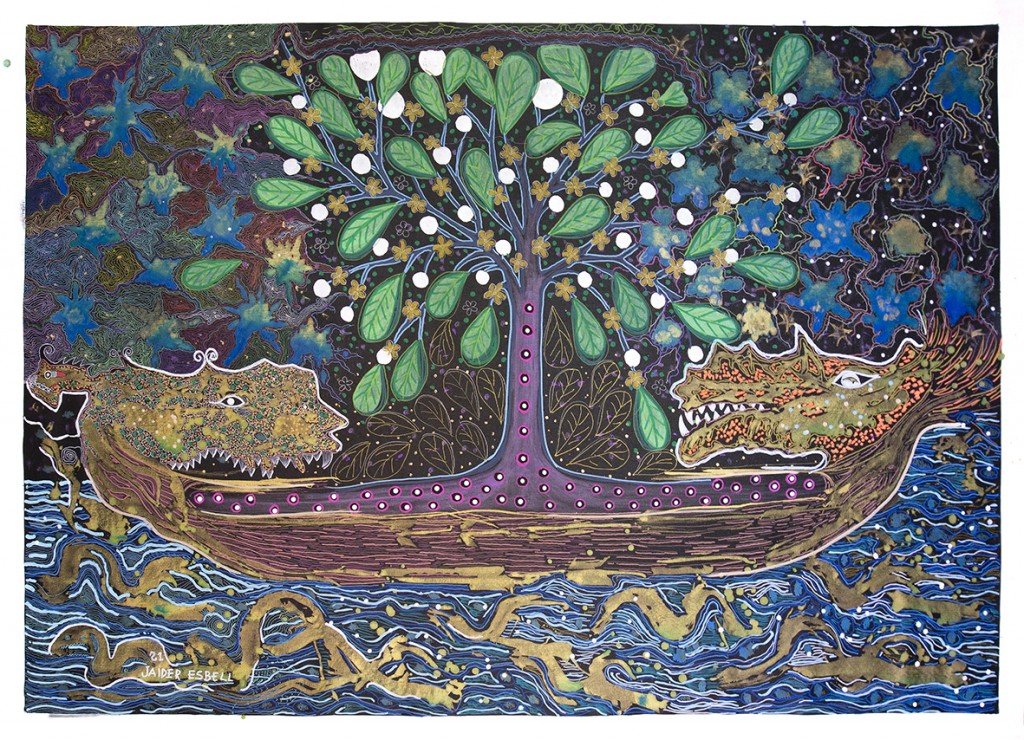INDIGENOUS GAMES AND LAW 11.645/2008: POSSIBILITIES FOR AN INTERCULTURAL CURRICULUM
POSSIBILITIES FOR AN INTERCULTURAL CURRICULUM
DOI:
https://doi.org/10.18227/2317-1448ted.v30i01.7919Keywords:
Jogos Indígenas, Educação Intercultural, Currículo, Sala de AulaAbstract
Abstract: The proposal that moves this study is based on a bibliographical research that aims to analyze how the activities carried out in the Indigenous Games can be used in the curriculum, considering the memories and culture of the original peoples, correlating them to the requirements of Law 11.645/2008. Thinking about the Indigenous Games from this perspective is a response that the school needs to give to the countless cultures present in society, in the roles that teachers can play in the development of the curriculum, specifically when one wants to attend to diversity and also in the potentialities of intercultural education in the sense of renewing a curriculum that materializes the principle of a school for all. We will seek a dialogue with the main authors on interculturality, identity, concepts about the inter and multicultural curriculum, and its connection with diversity, using the Indigenous Games to analyze different forms of knowledge built in these events, so that it is possible to bring them closer to teaching practices and propose intercultural activity in the school, in accordance with the legislation. In this direction, Grando, Xavante and Campos (2015) bring in their work an important study on indigenous games and games present in the memory of adults and elderly people from 18 indigenous ethnic groups. On the other hand, Cuyabano (2010) expands the discussion by contextualizing the historical relations between the original peoples and the non-indigenous society, based on the dialogue with the experiences lived in the games and current literature. In the same direction, the author Silva (2014) in his book “Identity and difference: the perspective of Cultural Studies” presents the importance of the concept of identity and the relations between culture, identity and difference. In turn, direction Brighenti (2022) presents the relationship between Law 11.445, intercultural education that can be experienced at school. In another direction, the authors Dorrico (2021) and Delmondez and Pulino (2014), discuss the relationship between indigenous education and indigenous school education, among other authors with an important contribution on the intercultural curriculum in this study. In this perspective, we place this work, which seeks a democratic, fair and plural education, with special relevance in the current moment marked by conservative and reactionary perspectives, guided by the decolonial perspective and its interrelationship with critical intercultural education.
Keywords: Indigenous Games. Intercultural Education. Curriculum. Classroom.
References
ALBÓ, Xavier. Cultura, interculturalidade, inculturação. Palmas-TO. Editora Loyola: 2005.
BRIGHENTI, Clovis Antonio. Revisitando a lei 11645/2008: A contribuição das cosmologias indígenas em sala de aula. Revista História em Reflexão, v. 15, n. 31, 2022.
CANDAU, V. M. (Org.). Sociedade, educação e cultura(s): questões e propostas. Petrópolis: Vozes, 2002.
CUYABANO; Emília Martins de Sousa. Povos indígenas, cultura lúdica e educação: lições de casa in GRANDO; Belene Salaté. Jogos e Culturas Indígenas: possibilidades para educação intercultural na escola. Cuiabá: Editora Educ, 2010.
RIBEIRO, Darcy. O povo brasileiro: a formação e o sentido do Brasil. São Paulo: Companhia das Letras, 2006.
DELMONDEZ, Poliani; PULINO, Lúcia Helena. Sobre Educação e Diferença no contexto da educação escolar indígena. Revista Psicologia e Sociedade. v. 26, n.3, pp. 632-641, 2014.
FLEURI, R. M. O que significa Educação Intercultural. In: FLEURI, R. M. Educação para a diversidade e cidadania. Módulo 2: Introdução Conceitual – Educação para a Diversidade e Cidadania. Florianópolis: MOVER/NUP/CED/EAD/UFSC, 2009.
GIL, Antônio Carlos. Como elaborar um projeto de pesquisa. São Paulo: Atlas: 2019.
GRANDO; Beleni Saleté. Jogo entre “parentes”. Os processos de educação do corpo, esporte, e lazer indígena no Brasil: reflexões a partir dos Jogos Escolares Indígenas. Revista Pedagógica, v.17, n 34, p.36-58, jan/abr, 2015.
LAVILLE, Christian; DIONNE, Jean. A construção do saber: manual de metodologia da pesquisa em ciências humanas. Porto Alegre: Artmed: Belo Horizonte: Editora UFMQ. p. 339, 1999.
LUDKE, Menga; ANDRÉ, Marly E. D. A. Pesquisa em educação: abordagens qualitativas. 2. ed. São Paulo: Editora Pedagógica e Universitária, 2013
MOREIRA, A. F. B. Currículo, diferença cultural e diálogo. Educação & Sociedade, n. 79, p. 15-38, 2002.
SILVA, T. T. Documentos de identidade: uma introdução às teorias do currículo. Belo Horizonte: Autêntica, 1999.
SILVA, Tomaz Tadeu da. Identidade e diferença: a perspectiva dos estudos culturais. Petrópolis-RJ. Editora Vozes: 2014.
SILVA, Gilson Divino Araújo da; NEVES, Josélia Gomes. Educação intercultural e os aspectos da lei nº 11645/2008 – história e culturas indígenas. Revista de Educação, Cultura e Ciência, v. 25, n. 2, p. 73-85, julho, 2020.
TERENA, Marcos. Em busca de reconhecimento. Revista desafios do desenvolvimento. Disponível emwww.ipea.gov.br/desafios/images/stories/ed88/161123_revista_desafios_88.pdf
OLIVEIRA, Luís Fernando de; CANDAU, Vera Maria Ferrão. Pedagogia decolonial e educação antirracista e intercultural no Brasil. Educação em Revista. v.26, n.01. p.15-40, abril de 2010.
QUIJANO, Aníbal. Colonialidad del poder, eurocentrismo y América Latina. In: LANDER, E. (Org.). La colonialidad del saber: eurocentrismo y ciencias sociales. Perspectivas Latinoamericanas. Buenos Aires: Clacso, 2007. p. 227-277.
RIVERDITO, Hitler Silva; SCAGLIA, Alcides José; MONTAGNER, Paulo César. Pedagogia do Esporte: Aspectos conceituais da competição e estudos aplicados. Editora Norte, São Paulo: 2013.
UCHÔA, Márcia Maria Rodrigues. Currículo Intercultural na Fronteira: Um Estudo Sobre Políticas e Práticas na fronteira de Brasil/Bolívia do Estado de Rondônia. 2019. Tese- Curso de Doutorado em Educação: Currículo, Pontífera Universidade Católica de São Paulo, 2019.
WALSH, Catherine. Interculturalidad Crítica/Pedagogia decolonial. In: Memórias del
Seminário Internacional “Diversidad, Interculturalidad y Construcción de Ciudad”, Bogotá: Universidad Pedagógica Nacional 17-19 de abril de 2007.
Downloads
Published
How to Cite
Issue
Section
License
Copyright (c) 2024 Textos e Debates

This work is licensed under a Creative Commons Attribution 4.0 International License.
The copyrights for the published articles belong to the author, the journal just have the rights of the first publication. Authors may only use the same works in other publications clearly indicating this journal as the original publication.





